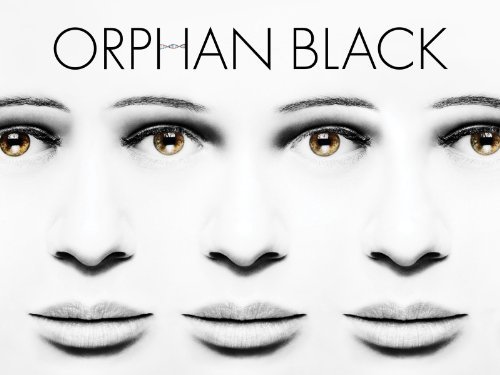 “Is it worth watching?” my wife asks me.
“Is it worth watching?” my wife asks me.
I’ve just begun Season 1 of Orphan Black and have torn through the first five episodes in an evening (yes, I know, I’m a bit late to the game).
“It’s sort of like a JJ Abrams show,” I tell her.
To some, this is enticing, praise; to others it’s a harsh critique. For me, it serves as shorthand for a certain set of aesthetic criteria that I both enjoy and dislike at alternating moments. At the level of sheer entertainment, his movies and shows work, but they feel a bit empty overall. Like a milkshake. It’s enjoyable but provides negligible nourishment. I should point out, of course, that this isn’t a JJ Abrams show. But it has the same feel, not to mention similar problems as Lost or Alias or Fringe or even the latest Star Wars or the second of his Star Trek movies. My favorite work of his is actually the first of his Trek movies, compelled as I was by the chemistry of the cast and the bold decision to rewrite Star Trek lore in order to raise the stakes. After all, with the timeline rewritten, any of these characters could be in peril. But like many, he lost me when he decided to retread old material and do Khan in the sequel.
In any case, Orphan Black isn’t an Abrams story, but it’s replicated its DNA. Would it be appropriate to say it’s a clone of an Abrams show? Particularly Alias, with a strong female lead putting on multiple personas. Still, I find Orphan Black compelling. Despite the empty calorie feel of it, I want to find out what happens. Part of this, I chalk up to the purpose most empty calorie shows serve in helping me unwind, shoveling off the stress of a burdensome day. If you’re looking for that type of thing, you can do a lot worse than Orphan Black. But most of the reason to watch is how good its lead actress Tatiana Maslany is at convincingly portraying the different clones as separate characters. It has to be both dream job and challenge for any actor to portray not two (as in the case with, say, portraying twins) but as of episode five, six separate personalities. At the end of the first, I wasn’t entirely convinced she could pull it off. I wasn’t a fan of her German girl. The accent felt contrived. But the subtle differences she imparts on the trinity of main clones of the soccer mom, genetic scientist and police detective have resulted in me sometimes forgetting the same actress is portraying all three (in fact, her scientist puts me in mind of Amy Acker of Angel/Dollhouse fame).
One of the shows weaknesses, however, is its inability to establish an emotional core, which, now that I’ve brought up Angel, I’d point to as a strength of Joss Whedon shows. The strained mother-daughter relationship between Sarah and Kira doesn’t resonate with the tear-jerking impact I believe it’s designed to. But I like her foster brother Felix and appreciate the writers’ integration of a gay character without making it topical but rather doing it as a matter of course (this in fact may be the most apt and likely-fulfilled futuristic element of the show and not the cloning part; although he’s still relegated to the standard “best friend” status). Still, even the brother and sister banter, while strong, doesn’t have enough chemistry to propel the show in the way that say, Gillian Anderson and David Duchovny’s chemistry lifted even mediocre episodes of The X-Files to the level of watchable.
Of course, I could be wrong about the Abrams empty calorie comparison here. Full disclosure is that I’ve only watched half the first season so far. Since the theme of the show is shifting identities, they could start to develop some interesting things that transcend the empty calorie feel it has in the beginning. For the time being, I’m coming back mostly for plot. The showrunners show just enough of the mystery to make you think you might have it, but you’re never quite sure. For example is Sarah the original because she can have children and the other clones can’t, or is this subterfuge designed to throw us off? After all, her foster mom calls Kira a miracle. So maybe she is a clone and this is an anomaly. If the writers are doing their job what seems obvious is obviously not true. I’m sure these things will be answered and they’ll keep us in the dark just enough to make us want more. This is a delicate balance. It’s a balance, in fact, that Abrams couldn’t retain with Lost, where I’m pretty sure by the end (a point at which I’d given up), no one knew just what the hell was going on. I hope that the Orphan Black writers can stick the landing. In any case, I’ll keep watching until I get bored. If it stays entertaining, who knows? I might end up watching the whole thing.
 “Is it worth watching?” my wife asks me.
“Is it worth watching?” my wife asks me.
There are no comments yet